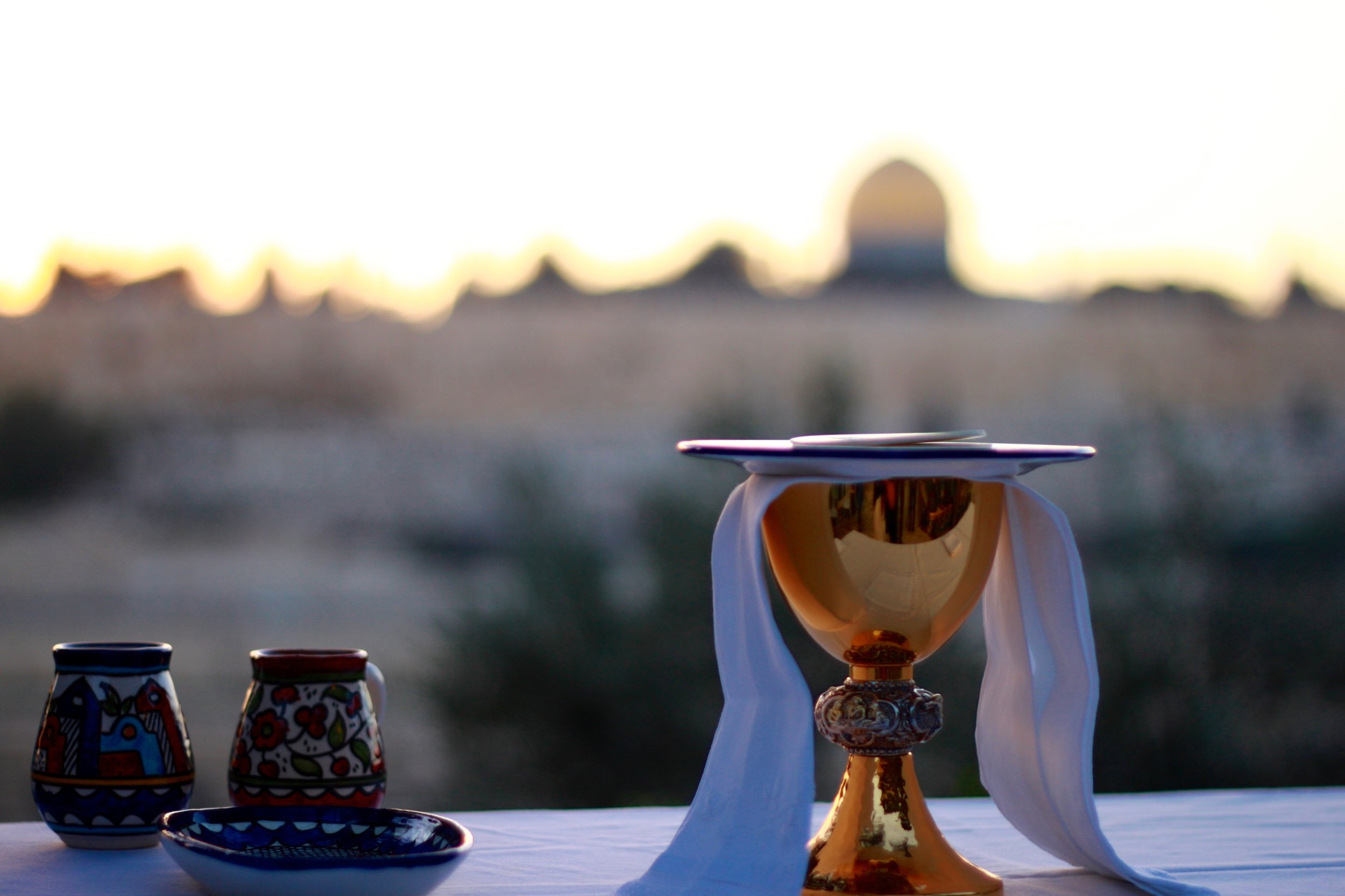What Is the Eucharist?
In terms of practice, nothing matters more to the Catholic than the Sacred Mystery of the Eucharist, where our Lord meets His family in an outpouring of grace.
But what is the Eucharist? What does it mean to be the source and summit of the Catholic faith? Drawing on the Greek word for thanksgiving, the Eucharist is at once a triumphant act of offering worship to our Lord and a humble act of receiving grace from Him. It is both a gift and a requirement. A synthesis of the natural and divine. True thanksgiving.
Like Christ Himself, the Eucharist is in a mystical sense both temporally and eternally present — a perpetual communion made accessible to us in a concrete moment in time. As Christ, the Eucharist sustains us. This divine sustenance is foreshadowed throughout the Old Testament (e.g., the manna in Exodus 16) and the New Testament (e.g., the Gospel accounts about Jesus’ feeding of the multitudes), but it didn’t stop there — it continues to be distributed for us throughout the ages in the Eucharist. Christ died once for all, but we can not only recall but participate in His eternal sacrifice every time we attend Divine Liturgy. Heaven meets earth each Sunday. And the culmination of this meeting is Christ in the Eucharist.
The work of our Savior is relational, and the demands of our faith are all-consuming. The Eucharist connects these two elements in a miraculous way. As we learn from St. Athanasius, Christ became man so that man might become God (On the Incarnation). In similar fashion, Christ becomes bread and wine so that, through our consumption, we might be consumed by the Divine Nature. We can become like Him, through Him. And because the source of the Sacrament’s grace is divine, its impact is limited only by our ability to receive it. Again and again we are invited to return to the Holy Table. A life spent following Christ will never be easy, but it would be impossible on our own. Fortunately, we aren’t.
Christ wants us to be like Mary in our service to Him, but He knows we need to be sustained by Him to do so — so, in a mystical and mysterious way, He lets us bring Him into our own bodies. There seems to be a strong connection between the manner in which Christ irrevocably altered the life of Mary by entering into her womb and the way we bring Christ into our bodies through the gift of the Eucharist. Mary was so consumed with love for our Lord that she never strayed from Him. If we are to follow her lead, we too must be consumed with love for our Lord. In the Eucharist, this love is brought to life. In the Eucharist, Christ enters us that we may become like Him.
The beauty of the Eucharist lies in its many layers. It is an eternal banquet shared with our Lord and with the entire communion of saints. It is a celebration of thanksgiving and a symbol of sacrifice. It is a conduit for divine grace and a reunion with our Lord. It is Christ for us. It is Christ in us.
If you have questions about Catholicism and would like to personally discuss them, we’d love to chat. Please contact us and someone on our team will reach out shortly to connect with you.

